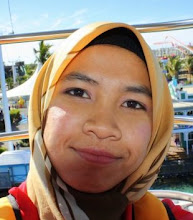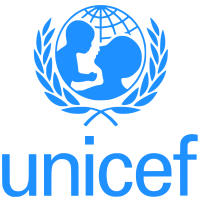by Anas Alam Faizli (TFTN founder)
Every December 5 since 1985, millions of volunteers across the globe celebrate the International Volunteers Day. This auspicious day is designated by the United Nations to mark the contributions of many voluntary organisations worldwide. During the recent celebration, Secretary-General Ban Ki-moon gave a profound message; crediting significant volunteer contributions to both economic and social development.
“Founded on the values of solidarity and mutual trust, volunteerism transcends all cultural, linguistic and geographic boundaries. By giving their time and skills without expectation of material reward, volunteers themselves are uplifted by a singular sense of purpose.” ~ Ban Ki-moon.
A Eurobarometer study conducted in 2006 estimated that full-time equivalent volunteers total approximately 140 million globally, contributing US$400 billion or 7 per cent of world GDP. Together with full time employees working for the sector, they would form the ninth most populous country in the world.
Voluntary but obligatory? Volunteerism as Fard Kifayah
Islam provides a beautiful perspective, encouraging volunteerism through the concept of the ‘fard-kifayah, or socially obligatory duty. An act is compulsory for any members of society should the need arise. As long as there is already another member of society performing it, this act will be non-compulsory at individual level. However, the sin of insubordination is borne by the whole society should no one perform it.
Early act of voluntarism made its impact in the Islamic society of Medina under the guidance of the Prophet, at a time when disunity, greed and selfishness plagued Bedouin Arabs. The great Nabawi mosque of Medina was built on a charitable basis, both by voluntary labour and cash. It was also benevolent military forces that fought numerous battles against Makkan forces during that period.
In America, voluntarism emerged during periods of European explorations westwards across the Pacific. Colonists in the “New Land” had no choice but to form mutual systems of support to ensure survival. Volunteers farmed, developed irrigation systems, and provided healthcare in the absence of state or commercial provision of communal needs. The resulting social cohesion from these voluntary acts became foundation for these earlier systems of livelihood for early colonies in North America. In mid-nineteenth century Europe too, collectives were organized voluntarily, forming businesses to deliver services given the then lack of a welfare state.
The selfless volunteers
Humans as economic agents are self-interested and aim to maximize their respective utility when they consume goods, and provide factors of production. So why do people volunteer? Different disciplines have different answers. The economist would attempt to quantify non-monetary benefits gained by a volunteer, while the sociologist would explain volunteerism as humankind’s way of expressing core societal principles, like solidarity, social cohesion, and democracy. Psychologists say that volunteerism is innate.
The phenomenon of volunteering is difficult to define academically because it is often public perception that defines it. However, there are three common characteristics of volunteerism beyond the original blunt definition of “work for no pay”. These are choice, going beyond paid or family responsibilities, and ultimately resulting in some kind of contribution to society. This stands even if the volunteer, in whatever way, personally benefits from volunteering.
The emergence of volunteerism in developing countries
The voluntary sector already represents an important part of socio, economic and political structures in developed countries. In the past few decades, it has enjoyed considerably intensive growth in developing countries too. This is due to several reasons. Most commonly, it is thought to arise from the emergence of pluralism, freedom of speech and increased pressures for solidarity amongst a people. It is also linked to democratic developments within society and populist rises against the ugly outcomes of capitalism. While these may all be true, the major underlying reason is efficient provision of goods and services, wherever markets and governments have failed.
As often misunderstood, the sector is apolitical; it need not be in opposing stance to the government. In fact, it strengthens and complements the government as well as market forces. Strong governmental support for the sector around the world can be seen as 40 per cent of funding for the sector comes from governments. 10 per cent come from philanthropy while the remaining comes from fees. Resources and funding vary with the wealth of a certain society.
Because needs and deficiencies vary between developed and developing countries, the kind of volunteer movements, the methods deployed, and the degree of exercisable difference, also vary. Volunteerism in developing countries may tackle developing issues such as educational opportunities, human rights or orphan care. Meanwhile, developed European countries may see the rise of volunteerism revolving around integration issues amongst second-generation immigrants, or urban backlashes. In America, volunteers may work for victims of a deeply rooted market-based capitalist system, and inequality. In any case, the basis of the voluntary sector is premised on the main goal of not-for-profit and the advancement of identified social goals.
Volunteerism, civil society as the “Third Sector”
Since the 1970s, volunteerism has been labelled as the Third Sector (after government and private sectors). Discussions have even gone as far as attaching the role of “saviour of democracy” to it and crediting it for the “rise of a civil society”. The academic realm suggests that the third sector is a credible alternative to state-provided and market-based welfare. But what is civil society and how is the third sector a potential saviour?
Civil society, put simplistically, was originally a term that describes any society living under a functional state. With increasing state meddling in matters of welfare, civil society disconnected itself to solely represent the interest of the third economic agent (households), championing their rights under banners such as “charity”, “humanity” and “equality for all”. That said, the government remains the primary caretaker of the general good and common wealth. Civil society simply shares this sense of “public welfare” without making claims to legitimate coercion or authority, unlike the government.
Voluntarism is an overarching characteristic of civil society. This is because civil society is essentially a collective action that is not a result of coercion or compulsion. Rather, it is made of groups of individuals with shared interests, purposes and values. In other words, civil society is the citizen, mobilized out of will. It is the sector that charities, NGOs, religious groups, trade unions, self-help groups, social movements, coalitions and advocacy groups would fall into.
Academics have outlined three major roles of civil society; to provide services, represent common citizens, and governance.
Civil society achieves this via multiple methods. First, it acts as pressure groups; analyzing prevalent policies and advocate recommendations. Secondly, civil society can become watchdogs and independent experts in monitoring state performance, effectively pressuring the public service to be accountable. Thirdly, civil society molds society by providing avenue for the latter to identify, articulate and act upon their beliefs and value systems. Fourth, it acts as a political agent, mobilizing marginalized sections of the society otherwise vulnerable, to participate and have representation in public affairs. Lastly, civil society is an industry of its own, a sector which contributes to society by consuming and demanding outputs of other industries while producing its own services.
Directly, it provides services to the community, which creates new value in itself. Quintessential examples of direct services are teaching and pro bono legal representation. Indirectly, it demands goods and services from businesses to be transferred to the needy. This actually benefits the commercial private sector as demand is increased, and lightens the burden of the government in providing public goods.
The Third Sector challenges
The third sector is not without its implementing challenges. Civil society acts in very sparse and fragmented manners making it difficult for them to be heard or exercise any concrete influence. Even with solidarity amongst many organizations, the true quality of their opportunities is questionable. Furthermore, it too faces possibilities of selectivity and elitism, because citizens that found and drive NGOs tend to be experienced or subject matter experts, instead of your common “everyday man”. This may hinder its claims to legitimacy. Another challenge is balancing diversity and efficacy. Civil society’s claims to be the antidote of democracy stems from its ability to release diverse resources, meet diverse needs, and give voice to diverse groups of citizens. However, to emerge as a harmonious third sector, reconciling this diversity remains a challenge.
Agent of democracy
After gaining momentum and scale, the Third Sector in developing countries will further become the proxy for transparency and supplement democratic deficits. We know that voluntarism is both reason and energy behind civil society but the definition of civil society itself is being continuously redefined. Thus, there is need to study ways to form a legitimate, influential and functional Third Sector. This can be achieved by experimentation in new forms of social enterprises, cooperatives and organizations that may transcend between traditional borders defining what’s public, what’s private, and what’s NGO.
The challenge is not so much in getting ordinary people on board. Rather, it is in making the organizations that these ordinary people form, influential and strong enough to exercise difference. As for its contribution to democracy, it will come from how prominently this third sector can emerge as a new player in a democratic setup and position itself at par with existing agents within it.
Teach For The Needs in retrospect
Teach For The Needs (TFTN) Malaysia holds the spirit of civil society at the core of its being. Ordinary citizens founded the organization as members of civil society, taking it upon themselves to fill in the current gaps within the national schooling system. Close to a year after its establishment, TFTN is now joined by more than 30 Teacher-Ambassadors and 350 registered Volunteers with 5 Expansion Program, developing neglected and underprivileged pupils and orphans both academically and emotionally.
On March 1, TFTN will be celebrating its first year of inception by launching its “Kempen Membaca” together with a Forum entitled “Sekolah Bukan Penjara, Universiti Bukan Kilang”. Panelists sharing their intellectual thoughts on the subject include YB Datuk Saifuddin Abdullah, Dr Maszlee Malik and Hishamuddin Rais. The forum will discuss and revisit the objectives of education, schools and universities from the perspective of society, exploring beyond the boundaries of the existing national education philosophy (Falsafah Pendidikan Negara). It is hoped that efforts like this will impact the communities within its reach, become building blocks to a legitimate third sector in Malaysia, and eventually form an influential voice within our democracy.
Passive democracy must now make way for active democracy, where civil society advocates participation and inclusiveness, rather than just going to the polls once in every five years.
* Anas Alam Faizli is an oil and gas professional. He is pursuing a post-graduate doctorate and is the executive director of Teach For The Needs (TFTN).











.jpg)

























